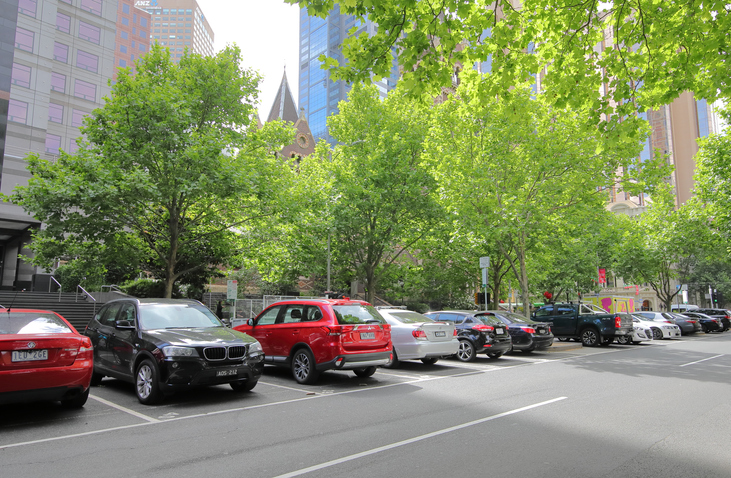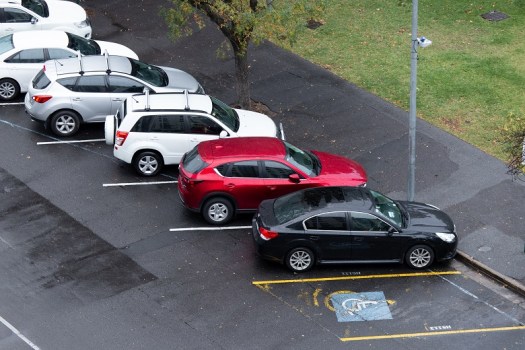
Better parking solutions, not more public transport, could be the key to solving urban congestion problems, an industry summit has heard.
Benjamin Cho, Business Development Manager at city access control technology specialists Nedap, talked about why comprehensive parking data is king at the Parking Australia Outlook Conference in Melbourne last Friday.
Mr Cho told delegates a global trend for people to move out of major cities and into the outer suburbs has created a challenges in terms of city access and traffic congestion.
Whether it’s state or federal or even local, we think that parking is neglected in the conversation around congestion solutions – Stuart Norman
Providing more public transport is often the first solution to easing congestion, Mr Cho says, but it’s not always the best.

Increasing public transport options can even create more problems because it means commuters need to leave their cars near public transport hubs.
“It’s a combination of things that need to be done by a multiple combination of governments to actually solve this problem,” he said at the conference.
Parking Australia CEO Stuart Norman says parking is an integral part of the solution to congestion.
“Whether it’s state or federal or even local, we think that parking is neglected in the conversation around congestion solutions,” he told Government News.
“We think that helping people to find or to locate and access a car park efficiently and quickly is something that will definitely assist congestion, especially in our larger cities.’
Hunt for parking spaces a cause of congestion

Mr Norman says studies around the world have shown that congestion inside big cities is usually caused by people driving around trying to find a park.
However, a better understanding of parking data can help councils make better policies around parking, Mr Cho said.
“You can actually use this parking data to actually improve your policy making and you can utilise this data a lot better. So, by collecting data, you can see where in your city there is congestion,” he said.
Nedap provides smart parking sensors that enable smart parking guidance, enforcement and retail parking in urban areas.
Parking is a data rich industry, according to Mr Norman.
“No matter what sector of the parking industry we’re in, we need to be using the data to develop insights that will deliver a better outcome for the operators and the customer,” he said.
Mr Cho believes that reducing congestion will also make for happier urban environments.
“If you beat congestion, the people in that city will be quite happy because that’s a common factor that a lot of people do want to battle,” he said.
Policy making done wrong
Getting parking policy wrong can have disasterous results, Mr Cho says, such as mismanaging parking around areas that have inconsistent influxes of motorists, such as around stadiums.
“There are areas like stadiums, once a week or once every two weeks you get massive congestion of cars and people illegally parking in them,” he told Government News.
Most councils are often surprised when they discover from analysing data that there are empty carparks in their area that are not being utilised.
“They’ll find that certain parking areas become full when people are looking for more carparks, and in certain areas there’s just empty carparks that haven’t been utilised because people either haven’t been guided to that area or people would rather battle for a parking spot and walk less,” Mr Cho said.
However, the right data is a good first step because it enables councils to make better policies, he says.
“They can make policies in such a way that it incentivises people to use the underutilised areas,” he said.
Inaccurate data is useless
Mr Cho warns that while data is great, if it’s inaccurate it will be of no help.
“Data is great when you have a lot of it, but it can really mislead you if it’s not accurate. And, also, if you skip a few data then that also changes how you make decisions as well,” he said.
Councils need to ensure that the data is accurate and consistent, and ensure that no points have been missed along the way.
“Data is really the core factor that you need, so if you start collecting data now you’ll be able to make better policies for next year,” he said.
Comment below to have your say on this story.
If you have a news story or tip-off, get in touch at editorial@governmentnews.com.au.
Sign up to the Government News newsletter


